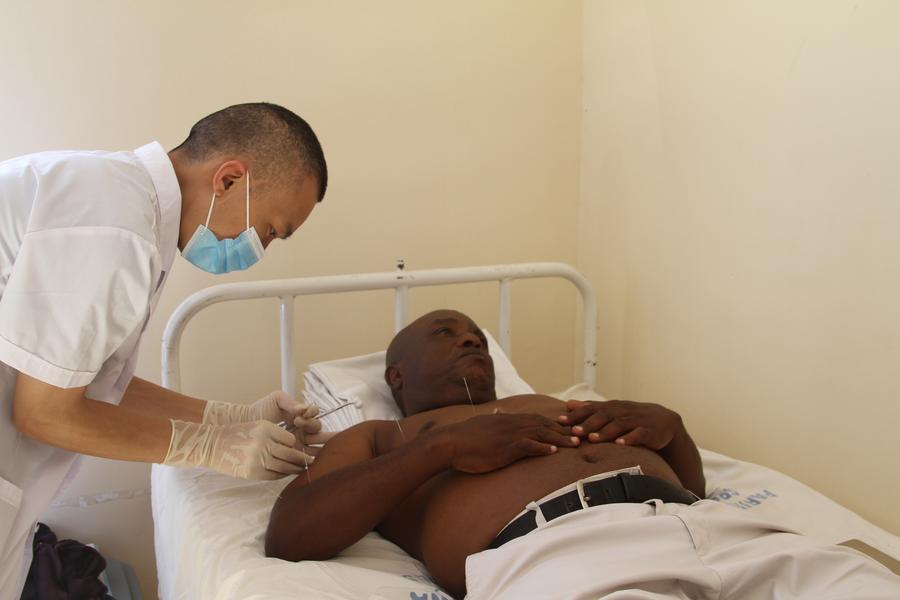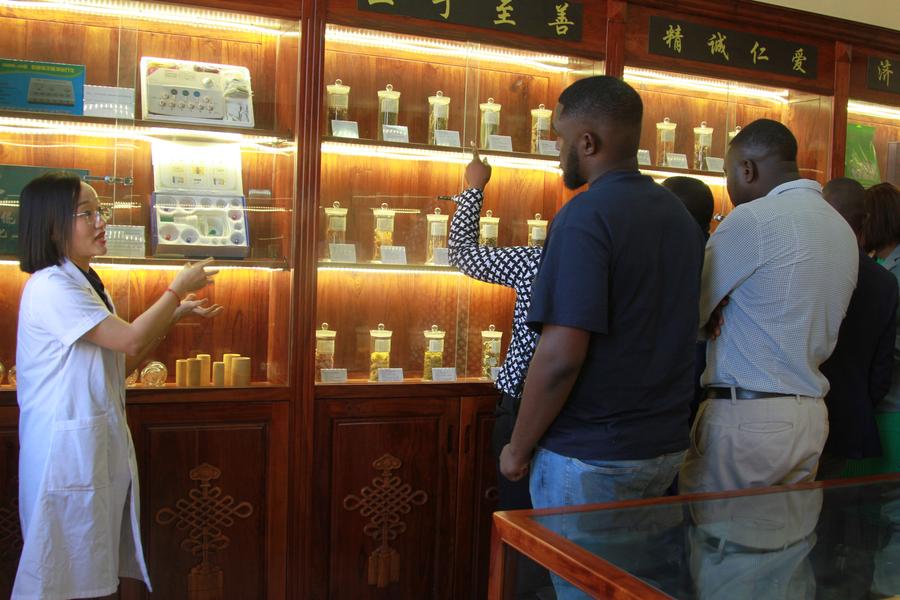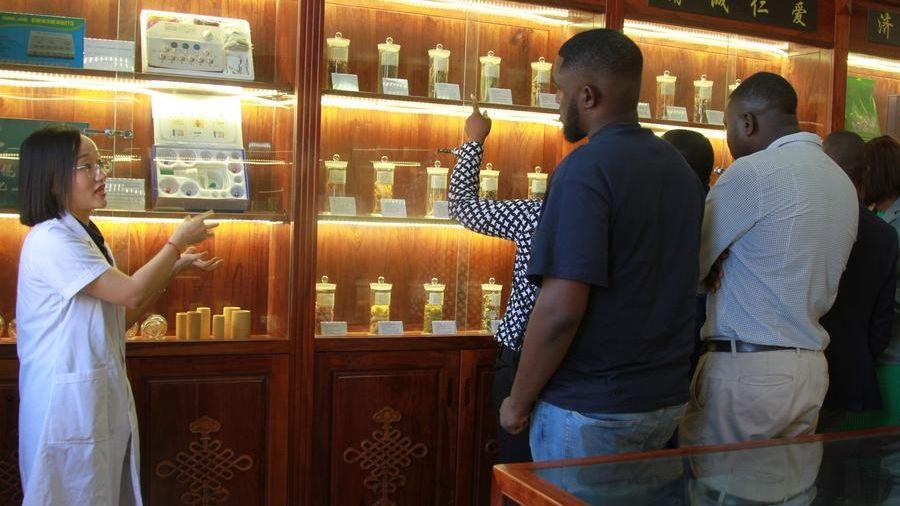
A Chinese doctor treats a patient with acupuncture at the Zimbabwe-China Traditional Chinese Medicine and Acupuncture Center in Harare, Zimbabwe, on Dec. 2, 2024. (Xinhua/Tafara Mugwara)
Demand for traditional Chinese medicine (TCM) is growing in Zimbabwe as more people seek to benefit from this medical system.
HARARE, Dec. 22 (Xinhua) -- Demand for traditional Chinese medicine (TCM) is growing in Zimbabwe as more people seek to benefit from this medical system.
Onias Ndoro, director of traditional medicines in the Ministry of Health and Child Care of Zimbabwe, said more health personnel are expected to be trained in TCM following the establishment of a TCM Center in 2020 at Parirenyatwa Group of Hospitals (PGH) in Harare, the capital of Zimbabwe.
"We also intend to open another clinic in the southern region, probably next year if resources permit," Ndoro told Xinhua Friday.
To meet the growing demand for TCM in the country, in 2022, a group of 10 medical workers graduated from a TCM personnel training course at the TCM Center at PGH, becoming Zimbabwe's first medical workers to complete such training.
"We included the training component for locals so that at least there is an element of sustainability and also to ensure that we can expand the scope of traditional Chinese medicine regarding the services we are offering at the clinic," said Ndoro.
Earlier this month, Ndoro attended the World Conference on Traditional Medicine 2024 in Beijing, where he participated in sharing experiences and ideas on traditional medicine.

A Chinese doctor shows visitors a variety of traditional Chinese medicine at the Zimbabwe-China Traditional Chinese Medicine and Acupuncture Center in Harare, Zimbabwe, on Dec. 2, 2024. (Xinhua/Tafara Mugwara)
The conference provided an opportunity to understand the global landscape of traditional medicine, he said.
"The key takeaways were the need for collaboration, integrating traditional medicine into national health systems, and continuing research to ensure the safety and efficacy of traditional medicines," he said.
Ndoro believed that incorporating Zimbabwean traditional medicine into the national healthcare system would ensure accessibility to healthcare services, especially in remote areas. "People can then choose which modality to apply under given circumstances," he said.
To enhance public knowledge of TCM, a TCM exhibition and emergency room was established at the TCM Center at PGH in June, with technical and financial support from the First Hospital of Hunan University of Chinese Medicine.
Hu Sha, director of the TCM Center at PGH, has organized several visits to the exhibition and emergency rooms to introduce the culture and techniques of TCM to the local people and strengthen cooperation between China and Zimbabwe in traditional medicine.
"When I arrived in Zimbabwe in March last year, I noticed that acupuncture had gained some popularity, but local people's understanding of TCM was limited to acupuncture and a few traditional Chinese medicines," Hu said. "However, TCM encompasses extensive and profound techniques and cultures, as well as many simple and effective first-aid methods. Therefore, I proposed the idea of building a TCM exhibition room and emergency room to showcase more TCM culture and techniques to the Zimbabwean people."
"This display center will help educate both practitioners and the public about TCM. We hope the exhibition will complement our training efforts and raise awareness of TCM," Ndoro said.




 A single purchase
A single purchase









